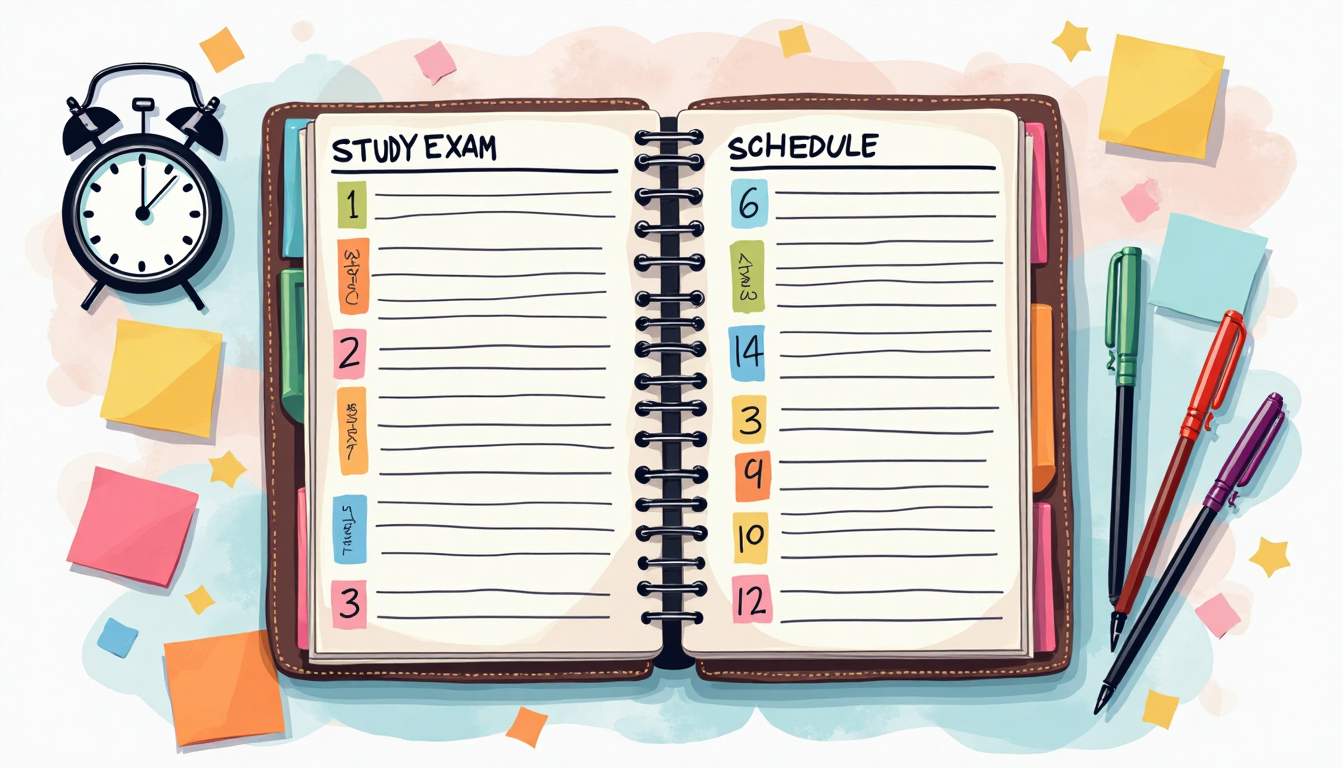The Gujarat Public Service Commission (GPSC) exam is a significant milestone for many aspiring candidates aiming for a career in the state’s administrative services. With its competitive nature and vast syllabus, effective preparation is key to success. This article outlines comprehensive strategies and tips to help candidates prepare efficiently for the GPSC exam paper.
Understanding the GPSC Exam Structure
Before diving into preparation, it is crucial to understand the structure of the GPSC exam. The exam typically consists of three stages: Preliminary, Mains, and Interview. Each stage has its significance and requires a tailored approach.
The Preliminary Exam
The Preliminary exam is the first hurdle that candidates must clear. It consists of two objective-type papers: General Studies I and General Studies II (also known as the CSAT). General Studies I covers a wide range of topics, including history, geography, polity, economy, and current affairs, while General Studies II tests candidates’ comprehension, logical reasoning, and analytical skills.
To excel in this stage, candidates should focus on understanding the syllabus and the weightage of various topics. Regular practice through mock tests and previous years’ question papers can significantly enhance performance. Additionally, developing a study schedule that allocates time for each subject can help candidates stay organized and ensure comprehensive coverage of the syllabus. Engaging in group study sessions can also provide diverse perspectives and facilitate a deeper understanding of complex topics.
The Mains Exam
The Mains exam is more comprehensive and consists of several descriptive papers. Candidates are required to write essays, answer questions related to their chosen optional subjects, and tackle general studies papers that delve deeper into various subjects. This stage assesses not only knowledge but also writing skills and the ability to articulate thoughts clearly.
Effective preparation for the Mains requires a solid grasp of the syllabus, extensive reading, and practice in writing structured answers. Candidates should also develop time management skills to ensure they can complete all papers within the allotted time. Furthermore, utilizing resources such as online forums, coaching classes, and study materials from reputed authors can provide valuable insights and enhance the quality of preparation. Engaging in peer reviews of written answers can also help identify areas for improvement and refine writing techniques.
The Interview Stage
The final stage of the GPSC exam is the interview, which carries significant weight in the overall assessment. This stage evaluates a candidate’s personality, communication skills, and suitability for a career in public service. Preparation for the interview should include current affairs, personal background, and a clear understanding of the role of a civil servant.
Moreover, candidates should practice mock interviews to build confidence and receive constructive feedback. Understanding the panel’s expectations and familiarizing oneself with common interview questions can also be beneficial. It’s essential to convey a genuine passion for public service and demonstrate a commitment to societal issues. Candidates may also consider researching successful candidates’ experiences to glean insights into effective strategies and approaches that resonated well with the interviewers.
Creating a Study Plan
A well-structured study plan is essential for effective preparation. Candidates should begin by assessing their strengths and weaknesses in various subjects and topics. This self-assessment will help in allocating time and resources efficiently. By identifying areas that require more focus, candidates can tailor their study sessions to address specific challenges, ensuring a more balanced and thorough understanding of the material.

Setting Realistic Goals
Setting achievable goals is crucial for maintaining motivation throughout the preparation journey. Candidates should break down the syllabus into manageable sections and set daily, weekly, and monthly targets. This approach not only makes the preparation process less overwhelming but also allows for regular assessment of progress. Additionally, celebrating small milestones can boost morale and encourage persistence, as each completed target serves as a reminder of the candidate’s dedication and hard work.
Incorporating a Variety of Resources
Relying on a single source of information can limit understanding and perspective. Candidates should utilize a variety of resources, including textbooks, online courses, video lectures, and study groups. Engaging with different materials can provide a more rounded understanding of complex topics. Furthermore, discussing concepts with peers in study groups can foster collaborative learning, where candidates can share insights and clarify doubts, enhancing the overall learning experience.
Regular Revision
Revision is a critical component of effective preparation. Candidates should allocate time for regular revision of previously studied topics to reinforce knowledge and improve retention. Creating concise notes and summaries can aid in quick revisions closer to the exam date. It can also be beneficial to incorporate active recall techniques, such as flashcards or practice quizzes, which challenge the candidate to retrieve information from memory, further solidifying their understanding and retention of the material. Regularly revisiting challenging topics can help to build confidence and reduce anxiety as the exam date approaches.
Effective Study Techniques
Employing effective study techniques can significantly enhance learning outcomes. Candidates should experiment with different methods to find what works best for them.
Active Learning
Active learning involves engaging with the material rather than passively reading or listening. Techniques such as summarizing information in one’s own words, teaching concepts to others, and discussing topics in study groups can enhance understanding and retention.
Practice Mock Tests
Mock tests are invaluable for exam preparation. They help candidates familiarize themselves with the exam format, manage time effectively, and identify areas that require further study. Regularly taking mock tests can also reduce exam anxiety and build confidence.
Mind Mapping
Mind mapping is a visual tool that can help in organizing information and establishing connections between different concepts. Creating mind maps for various topics can aid in better understanding and recall, making it easier to navigate complex subjects.
Staying Updated with Current Affairs
Current affairs play a crucial role in the GPSC exam, particularly in the Preliminary and Mains stages. Candidates should develop a habit of staying updated with national and international news, government policies, and socio-economic developments.

Daily News Consumption
Incorporating daily news reading into the study routine can help candidates stay informed. Reliable sources such as newspapers, news websites, and current affairs magazines should be part of the daily regimen. Summarizing news articles and noting key points can aid retention.
Monthly Current Affairs Review
In addition to daily news, candidates should conduct a monthly review of current affairs. This can involve compiling key events, government schemes, and important announcements. Creating a dedicated notebook for current affairs can streamline this process and serve as a quick reference guide.
Health and Well-being During Preparation
While academic preparation is vital, maintaining physical and mental well-being is equally important. A balanced approach can enhance focus, reduce stress, and improve overall performance.
Regular Exercise
Incorporating regular physical activity into the daily routine can boost energy levels and improve concentration. Exercise releases endorphins, which can help alleviate stress and anxiety. Simple activities such as walking, yoga, or even short workout sessions can make a significant difference.
Healthy Eating Habits
A nutritious diet plays a crucial role in cognitive function and overall health. Candidates should focus on a balanced diet rich in fruits, vegetables, whole grains, and proteins. Staying hydrated is equally important, as dehydration can lead to fatigue and decreased concentration.
Mindfulness and Relaxation Techniques
Practicing mindfulness and relaxation techniques can help manage stress and improve focus. Techniques such as meditation, deep breathing exercises, and even short breaks during study sessions can rejuvenate the mind and enhance productivity.
Joining Study Groups and Coaching Classes
While self-study is essential, joining study groups or coaching classes can provide additional support and resources. Collaborative learning can enhance understanding and provide motivation.
Benefits of Study Groups
Study groups allow candidates to discuss topics, share resources, and clarify doubts. Engaging with peers can provide different perspectives on complex subjects and foster a sense of community. Additionally, study groups can help maintain accountability and motivation.
Choosing the Right Coaching Class
If opting for coaching, it is important to choose a reputable institute that aligns with individual learning styles. Researching the faculty, course structure, and success rates can help in making an informed decision. Coaching can provide structured guidance and access to experienced educators who can offer valuable insights.
Final Preparation and Exam Day Strategies
As the exam date approaches, candidates should focus on consolidating their knowledge and fine-tuning their exam strategies. The final weeks are crucial for ensuring readiness.

Last-Minute Revision
In the final weeks leading up to the exam, candidates should focus on revising key concepts and important topics. This is not the time to start new subjects; instead, reinforcing what has already been learned is essential. Quick revision notes and flashcards can be particularly useful during this time.
Exam Day Preparation
On the day of the exam, candidates should ensure they are well-rested and have all necessary materials ready. Arriving at the exam center early can help reduce anxiety and allow time for a final review of notes. It’s also important to stay calm and focused during the exam, managing time effectively to ensure all questions are attempted.
Conclusion
Preparing for the GPSC exam requires a well-rounded approach that combines effective study techniques, regular revision, and a focus on health and well-being. By understanding the exam structure, creating a solid study plan, and employing various resources, candidates can enhance their chances of success. Remember, consistency and perseverance are key. With dedication and the right strategies, achieving success in the GPSC exam is within reach.
Take the Next Step with GPSC OJAS
Now that you’re equipped with the knowledge on how to prepare for the GPSC exam, it’s time to put your plans into action. GPSC OJAS is here to support you on your journey to securing a prestigious government job in Gujarat. With our up-to-date information on government job notifications, exam updates, and recruitment news, you’ll never miss an opportunity. Explore Jobs today with GPSC OJAS and take a significant step towards a successful career in the administrative services of Gujarat.